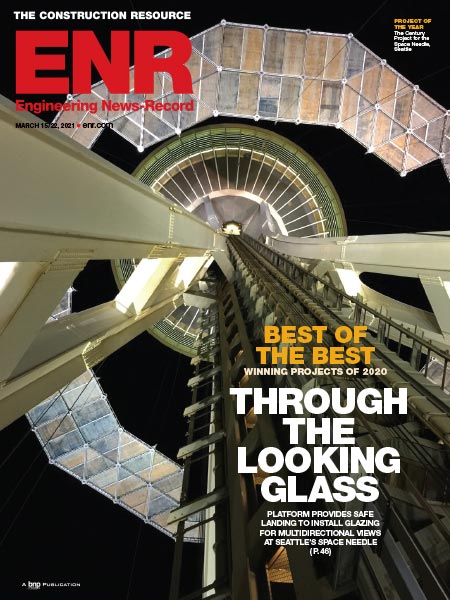Federal funding for surface transportation projects should migrate from the traditional petroleum fuel-based tax to a mileage-based user fee by 2020, according to a 15-member commission appointed by Congress two years ago. The bipartisan group released its final report Feb. 25 with recommendations for overhauling the highway trust fund, which is due for reauthorization later this year.
The National Surface Transportation Infrastructure Financing Commission includes financial experts, lawyers, politicians and transportation industry leaders such as Elliot Sander, chief executive officer of the New York Metropolitan Transportation Authority, and Jeffrey C. Crowe, chairman of Landstar System, Inc. “We were charged with projecting the needs of surface transportation over the long term, how much money goes into the trust fund under the current policy and finally, what should Congress consider doing to replace the gas tax,” says Geoffrey Yarema, a commission member and a partner with Nossaman LLP, Los Angeles, a law firm specializing in infrastructure and transportation. “We have completed that task...it was unanimous.”
The commission, estimating average annual capital needs for surface infrastructure at $172 billion a year just to maintain conditions, recommends that the next six-year reauthorization of SAFETEA-LU include “substantial efforts” to begin a transition from the gasoline tax to a mileage-based user fee.
One example of these efforts would be a demonstration program that would expand on the experiment done in Oregon. Using a $1.25-million Federal Highway Administration grant, Oregon State University engineering researchers in Eugene designed an in-vehicle system that relies on a "smart" odometer paired with wireless technology to calculate how many miles a vehicle travels before refueling. When filling up the tank, the fee was automatically added to the cost of gas, in lieu of a gasoline tax. “Germany and Austria are doing this for trucks, and the Netherlands plans to employ a system for all vehicles by 2015,” notes Yarema.
The report also recommends that the government provide funding incentives to states who pursue tolling on road expansion projects, relax restrictions on tolling existing Interstate sections in congested metropolitan areas and expand the private activity bonds program from a $15-billion cap to $30 billion. “We think as the credit markets recover, demand will come back in spades” for bonds to fund projects, Yarema says.
As a band-aid measure, the commission recommends the current tax on gasoline be raised 10¢ and the diesel tax be increased 15¢ immediately. “We sized these increases only to make up for lost purchasing power,” says Yarema, pointing out that fuel taxes haven�t been raised for some 30 years. “It will cost the average household $9 a month.”
After briefing Congress on the report, the commission will discuss its elements with various stakeholder groups, he says. The report and information on the commission can be found at http://financecommission.dot.gov.





